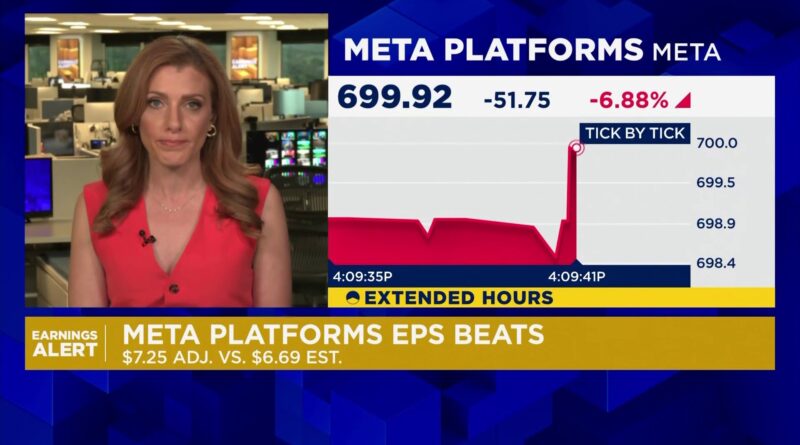Meta CEO Mark Zuckerberg defends AI spending: ‘We’re seeing the returns’
Mark Zuckerberg, chief executive officer of Meta Platforms Inc., during the Meta Connect event in Menlo Park, California, US, on Wednesday, Sept. 17, 2025.
David Paul Morris | Bloomberg | Getty Images
Meta CEO Mark Zuckerberg is sounding a familiar tune when it comes to artificial intelligence: better to invest too much than too little.
On his company’s third-quarter earnings call on Wednesday, Zuckerberg addressed Meta’s hefty spending this year, most notably its $14.3 billion investment in Scale AI as part of a plan to overhaul the AI unit, now known as Superintelligence Labs.
Some skeptics worry that the spending from Meta and its competitors in AI, namely OpenAI, is fueling a bubble.
For Meta’s newly formed group to have enough computing power to pursue cutting-edge AI models, the company has been building out massive data centers and signing cloud-computing deals with companies like Oracle, Google and CoreWeave.
Zuckerberg said the company is seeing a “pattern” and that it looks like Meta will need even more power than what was originally estimated. Over time, he said, those growing AI investments will eventually pay off in a big way.
“Being able to make a significantly larger investment here is very likely to be a profitable thing over, over some period,” Zuckerberg said on the call.
If Meta overspends on AI-related computing resources, Zuckerberg said, the company can repurpose the capacity and improve its core recommendation systems “in our family of apps and ads in a profitable way.”
Along with its rivals, Meta boosted its expectations for capital expenditures.
Capex this year will now be between $70 billion and $72 billion, compared to prior guidance of $66 billion to $72 billion, the company said.
Meanwhile, Alphabet on Wednesday increased its range for capital expenditures to $91 billion to $93 billion, up from a previous target of $75 billion to $85 billion. And on Microsoft’s earnings call after the bell, the software company said it now expects capex growth to accelerate in 2026 after previously projecting slowing expansion.
Alphabet was the only one of the three to see its stock pop, as the shares jumped 6% in extended trading. Meta shares fell about 8%, and Microsoft dipped more than 3%.
Zuckerberg floated the idea that if Meta ends up with excess computing power, it could offer some to third parties. But he said that isn’t yet an issue.
“Obviously, if you got to a point where you overbuilt, you could have that as an option,” Zuckerberg said.
In the “very worst case,” Zuckerberg said, Meta ends up with several years worth of excess data center capacity. That would result in a “loss and depreciation” of certain assets, but the company would “grow into that and use it over time,” he said.
As it stands today, Meta’s advertising business continues to grow at a healthy pace thanks in part to its AI investments.
“We’re seeing the returns in the core business that’s giving us a lot of confidence that we should be investing a lot more, and we want to make sure that we’re not under investing,” Zuckerberg said.
Revenue in the third quarter rose 26% from a year earlier to $51.24 billion, topping analyst estimates of $49.41 billion and representing the company’s fastest growth rate since the first quarter of 2024.
WATCH: Meta reports Q3 earnings beat, company takes one-time tax charge.

Source – CNBC




